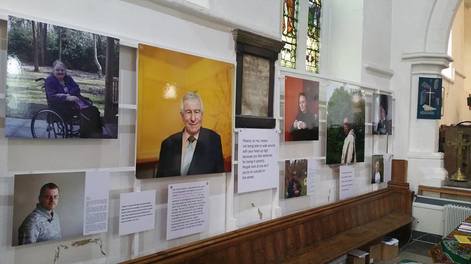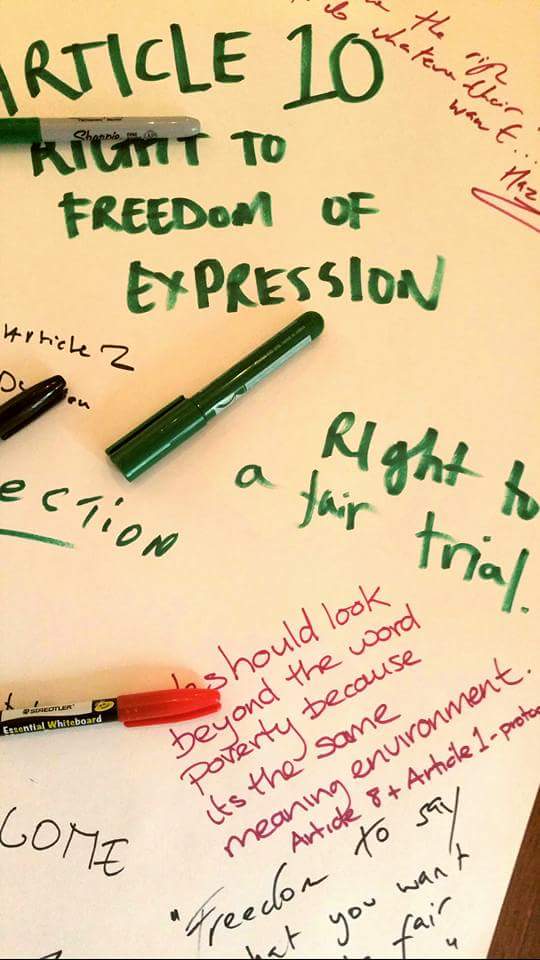Human rights and poverty: Giving Poverty a Voice

ATD Fourth World UK have been exploring the theme of human rights over the past year through our Giving Poverty a Voice programme; looking at what human rights are, where they come from and how they apply to daily challenges that we face. We are currently looking at different articles of the Human Rights Act in the UK, what we have learned about them, the links between human rights and poverty and reflecting on their significance in our daily life.
Over the past meetings we have heard some very powerful comments about the topic:
“If you’re poor, lots of your human rights are automatically denied.”
“When you live in poverty, you have different fights and you’ve got the problem of finding out what human rights are and where to go [if you need them enforced].”
“Human rights are intrinsically linked to poverty. When you look at poverty, you look at welfare, housing, social care, you look at many different things. I’d like to think that in this country we live in a society that believes in human rights, regardless of the political colour”.
Other common concerns included:
- the importance of understanding human rights, where to look for help and have free access to it
- have a voice to speak about poverty, without feeling judged or discriminated against
- right to bring up a family with access to housing, education, health, work and opportunities
‘Rights for rich and poor alike’
Participants also discussed which human rights they see as being important to focus on in the coming months. Seamus, a committed and long standing family member of ATD Fourth World UK, said that he would like to focus on the Right to Freedom of Assembly. “What are our freedoms when we’re on a demonstration? We don’t want to overstep the mark; we want to keep it within the law.” Ian, who has started taking part in the workshops, wants to explore the right to education and Freedom of Expression. He said how freedom of speech is important and how “[it] comes with a responsibility. You need to respect others’ speech.” Another participant concluded that “Human rights are for one and all, rich and poor alike.”

They also shared what this project means to them. Ian says simply: “The workshops make me feel confident…. They give people a chance to get things out in the open about their lives and their realities which are usually ignored.” And Seamus: “Giving Poverty A Voice gives me knowledge and understanding. We learn from each other, as much as you learn from us we learn from you. It’s a two way street. Over thirty years I’ve learnt a lot and I have gained a lot of knowledge.”
These workshops have been raising lots of questions of how we, as a society, can ensure that everyone’s basic human rights are met. Unfortunately these questions don’t have any straight-forward answers, but we are deepening our knowledge and understanding of the issues and this gives a stronger basis for moving forward.

